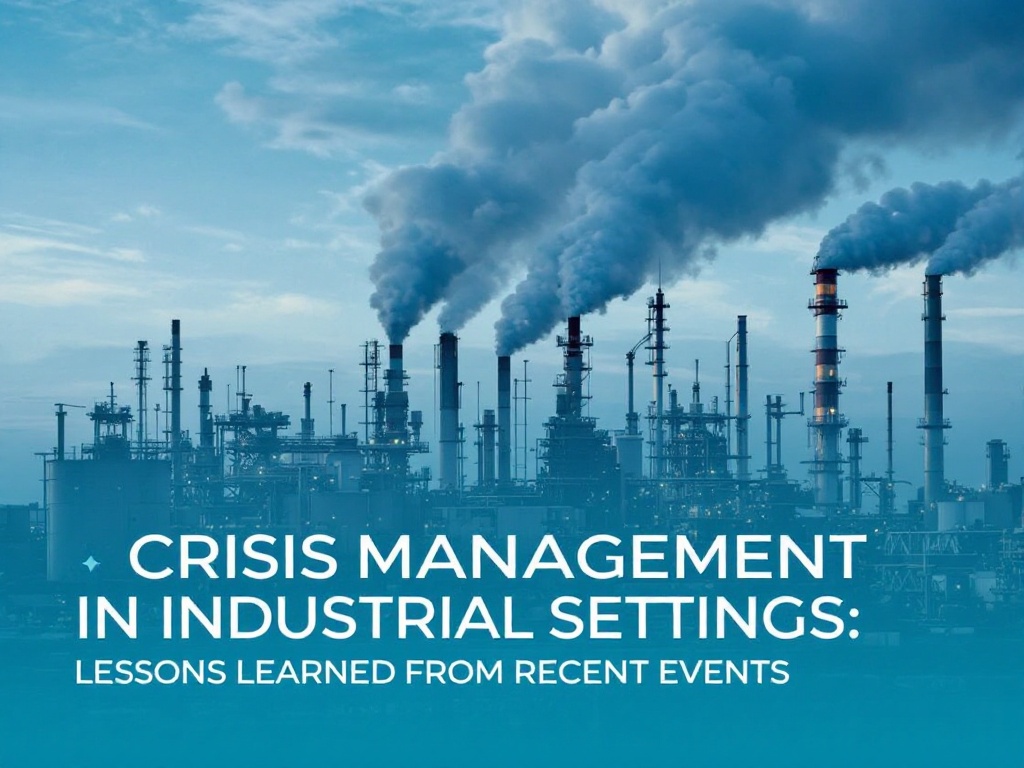As we navigate through 2024, the industrial sector continues to face various challenges that test our crisis management capabilities. At ChiJay Infrastructure Solutions, we believe in learning from past experiences to better prepare for future uncertainties. Let’s explore some recent industrial crises and the valuable lessons they’ve taught us about effective crisis management.
1. The Importance of Preparedness
Recent events have underscored the critical nature of being prepared for crises. According to a Harvard Business Review study, companies with crisis management plans in place were 3.5 times more likely to recover from crises faster. This highlights the need for proactive planning and regular crisis simulations.
Lesson: Develop and regularly update comprehensive crisis management plans. Conduct frequent drills to ensure your team is ready to act swiftly when a crisis hits.
2. Cybersecurity as a Top Priority
With the increasing digitalization of industrial processes, cybersecurity has become a major concern. The Institute for Crisis Management (ICM) reported numerous cybersecurity-related crises in 2023, emphasizing the need for robust digital protection measures.
Lesson: Invest in state-of-the-art cybersecurity measures and regularly update your systems to protect against evolving threats.
3. Transparent Communication
The way companies communicate during a crisis can significantly impact their reputation and recovery. The Bud Light controversy of 2023 serves as a reminder of the importance of clear, consistent, and timely communication.
Lesson: Develop a crisis communication strategy that prioritizes transparency, empathy, and regular updates to all stakeholders.
4. Supply Chain Resilience
Global events have exposed vulnerabilities in many industrial supply chains. Companies that diversified their suppliers and embraced digital supply chain management tools fared better during recent crises.
Lesson: Implement strategies to enhance supply chain resilience, including supplier diversification and the adoption of advanced supply chain management technologies.
5. Environmental, Social, and Governance (ESG) Focus
Regulatory bodies are placing increased emphasis on ESG compliance. Companies that proactively addressed these areas were better positioned to handle related crises and maintain stakeholder trust.
Lesson: Integrate ESG considerations into your overall business strategy and crisis management plans.
6. Leveraging Technology in Crisis Management
The use of AI, machine learning, and data analytics in crisis management has proven effective in predicting and mitigating potential issues. Companies that embraced these technologies demonstrated better crisis response capabilities.
Lesson: Invest in and integrate advanced technologies to enhance your crisis prediction, prevention, and management capabilities.
7. Human Factors and Safety Culture
Despite technological advancements, human factors remain crucial in crisis prevention and management. Fostering a strong safety culture has been shown to significantly reduce the likelihood and impact of industrial crises.
Lesson: Prioritize the development of a robust safety culture through regular training, open communication channels, and employee empowerment.
8. Adaptive Leadership
The rapidly changing nature of crises in 2023-2024 has highlighted the need for adaptive leadership. Leaders who demonstrated flexibility, emotional intelligence, and decisive action were more successful in navigating complex crisis situations.
Lesson: Develop leadership training programs that focus on adaptability, emotional intelligence, and decision-making under pressure.
9. Continuous Learning and Improvement
The ICM Annual Crisis Report for 2023 emphasized the importance of learning from past crises. Companies that conducted thorough post-crisis analyses and implemented lessons learned showed improved crisis management capabilities over time.
Lesson: Implement a system for continuous learning from both your own experiences and those of other companies in the industry.
Conclusion
As we move forward in 2024, the landscape of industrial crises continues to evolve. At ChiJay Infrastructure Solutions, we’re committed to helping our clients stay ahead of potential crises by implementing these lessons and continuously adapting our strategies.
Remember, effective crisis management is not just about responding to emergencies – it’s about creating a resilient organization that can withstand challenges and emerge stronger. By focusing on preparedness, leveraging technology, fostering a strong safety culture, and prioritizing continuous learning, industrial companies can enhance their crisis management capabilities and ensure long-term success.
Are you ready to elevate your crisis management strategy? Contact ChiJay Infrastructure Solutions today to learn how we can help you implement these lessons and build a more resilient organization.

